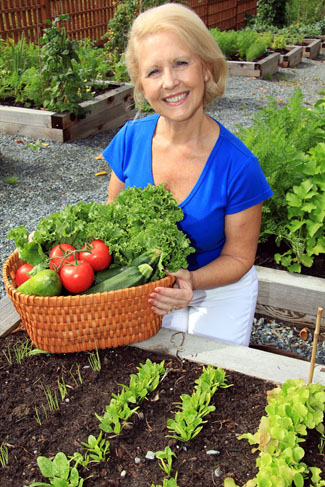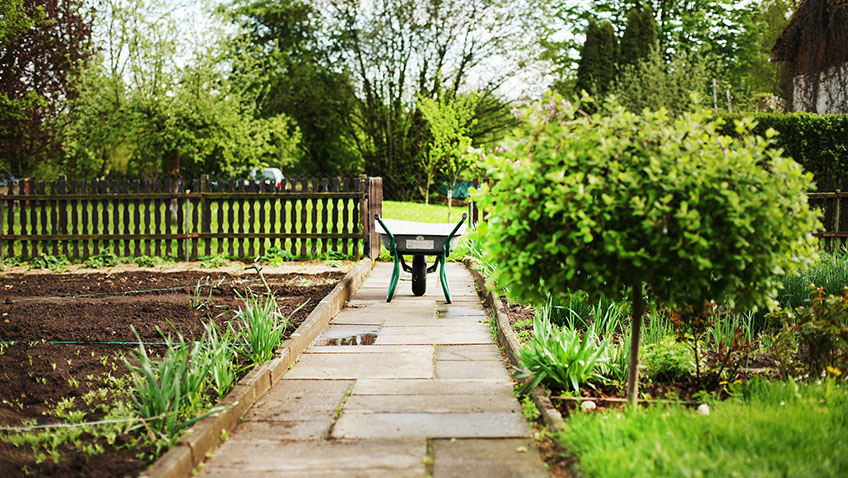With summer just around the corner, our gardens are fast approaching their best. But gardens aren’t just nice to look at, they are also good for your health and well-being. How? Well read on and find out more!
Gardening is one of the world’s oldest mental health treatments. The coordination, dexterity, planning, perseverance and care associated with gardening is scientifically proven to positively impact on wellbeing.
A UK report published by academic journal Health and Social Care in the Community found the flexible nature of gardening projects allows service users to feel empowered in a non-threatening space.
On the other side of the world, a study of more than 2,800 Australians in their 60s found gardeners had a 36% lower risk of developing dementia than their non-gardening counterparts.
And if that isn’t enough, gardening can also help to develop nurturing skills, boost mindfulness, combat stress, and increase serotonin and dopamine levels. People are even being advised to take up gardening by their doctors as part of the growing trend towards social prescribing.
Five ways to mental wellbeing
According to James Campbell, Chief Executive at leading national horticulture charity Garden Organic green fingers can help to boost your health and wellbeing and fulfil the five ways of looking after your mental wellbeing recommended by the mental health charity Mind. His top five tips for doing this are:
Connect – Gardening helps people connect with nature, the soil, oneself and others. Getting involved in gardening projects can help gardeners build relationships, work in a team and feel valued by people. The charity works with a diverse range of people including young carers, care home residents, those in prison, people with mental and physical health issues and many in deprived communities. All have benefited from connecting with others through gardening.
Keep active – Even tending a small garden provides a regular reason to keep active. Physical activity is associated with lower rates of depression and anxiety. Activities such as mowing lawns, removing weeds, installing fencing and strimming hedges are just as good for the mind as they are for the body. Planning your future growing programme also helps activate your mind. There is also another health benefit – gardening is a physical activity which can burn between 200 and 500 calories an hour!
Take notice – Gardening encourages us to take notice of our surroundings, whether that be noticing pests and plant diseases or the progress of plant growth. People talk of the garden being a refuge, one that helps feelings of calm and relaxation – as well as competence, enjoyment, curiosity and hope. Numerous studies into ecotherapy – a formal treatment involving doing activities in natural environments – have revealed that gardening can help with mild to moderate depression and anxiety. What’s more, natural light is known to have a positive impact on seasonal affective disorder (SAD).
Learning – Continued learning helps us become more social and live a more active life. Attending gardening workshops and courses, or learning from others leads to new skills and added satisfaction with life. The charity runs a range of courses and training programmes from looking after the soil, to composting, planting and getting rid of pests in an organic way.
Give – Gardening helps us give back by participating in social and community life. Garden Organic’s “Master Gardeners” and “Master Composters” are teams of trained volunteers who lead activities and provide organic gardening and composting advice in the local community including communal gardens, allotments, residential homes, schools and libraries. Volunteering is recognised as beneficial for mental health, it increases self-confidence and self-esteem, and provides a sense of accomplishment and pride.
Bonus for growing fruit and vegetables
In addition to these five ways to wellbeing through gardening those who wish to grow crops in their garden may be surprised to know that fruit and vegetables can make you happier.
 According to researchers at the University of Leeds, “eating just one extra portion of fruit and vegetables a day could have an equivalent effect on mental wellbeing as walking for eight days per month.”
According to researchers at the University of Leeds, “eating just one extra portion of fruit and vegetables a day could have an equivalent effect on mental wellbeing as walking for eight days per month.”
However, how your food is grown can have a major impact on your mental and emotional health as well.
Organic foods often have more beneficial nutrients, such as antioxidants, while some people with allergies to foods, chemicals, or preservatives have experienced reduced symptoms when going organic.
And if you still need convincing, a study of more than 70,000 people suggested eating organic foods can significantly lower your cancer risk.
For more information about the charity, on organic gardening or to get involved with local projects then visit the website at www.gardenorganic.org.uk


